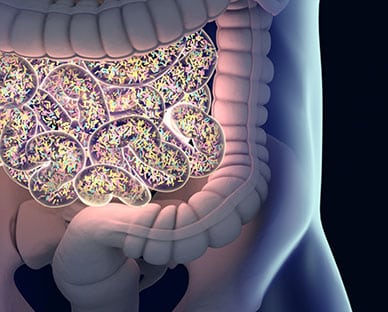With its high omega-3 fatty acid content, there is no shortage of the amazing benefits of fish oil for men, including immense advantages for both physical and mental health concerns. Here is what you need to know about how to get adequate amounts of this this nutritional gold and how it can help you to be healthier.
What is Fish Oil
 Fish oil is full of valuable omega-3 polyunsaturated fatty acids; while these essential fatty acids are used throughout the body, you are not able to produce them on your own. Because the human body can’t produce omega-3s, it’s important to be intentional about getting these nutritional powerhouses from various dietary sources or supplements.
Fish oil is full of valuable omega-3 polyunsaturated fatty acids; while these essential fatty acids are used throughout the body, you are not able to produce them on your own. Because the human body can’t produce omega-3s, it’s important to be intentional about getting these nutritional powerhouses from various dietary sources or supplements.
The three most common types of omega-3s are eicosapentaenoic acid (EPA), docosahexaenoic acid (DHA) and alpha-linolenic acid (ALA). Although EPA and DHA are found in abundance in fish oil, ALA is derived from seeds and oils such as flaxseed, hemp, chia and common vegetable oils.
Good Sources of Fish Oil
The best dietary source of fish oil is fatty fish like sardines, salmon, tuna, herring and mackerel. According to the American Heart Association (AHA), it is advised to make fish a part of your diet at least twice per week. Unless you are intentional about eating a great amount of fatty fish each week, there is a good chance that you are not getting enough omega-3 fatty acids to see the immense benefits.
Other good sources of omega-3 fatty acids are certain plant oils, including canola, soybean and flaxseed. Chia seeds and walnuts are good sources if you need a quick and portable source. You may also find these omega-3s in fortified foods, including certain types of yogurt and eggs. Be sure to carefully read the labels if you are looking for foods that have been fortified with these fatty acids.
As with most of your nutritional needs, you can also look into supplements that provide fish oil as a viable way to provide extra insurance. If looking into supplements, keep in mind that studies have shown that taking a fish oil supplement with a meal that contains fat may work to boost the rate of absorption. According to the National Center for Complementary and Integrative Health, a fish oil supplement is unlikely to cause major negative side effects.
Benefits of Fish Oil for Men
Now that you know where to find these essential fatty acids, you need to know why it is so important for you to make this effort. Here are some of the primary benefits of fish oil for men.
Heart Health
Heart disease is the leading cause of death for males in the United States. This statistic makes it worth the time to discover ways that you can help to mitigate this risk. Taking in adequate amounts of fish oil may reduce triglyceride levels and blood pressure. Additionally, the heart-healthy omega-3s may also lower levels of bad cholesterol in the body.
Sexual Health
So why is taking in the recommended amount of fish oil particularly beneficial to men? A 2020 study suggested that taking a fish oil supplement led to a higher volume of semen for men. Men who took a fish oil supplement also boasted a better profile for the hormone that regulates the production of sperm. Together, these results suggest that fish oil supplements may be beneficial in both fertility and sexual function.
Eye Health
A recent study showed that adequate amounts of fish oil could treat inflammatory eye diseases while also reducing the risk of developing age-related macular degeneration (AMD). In addition, the American Academy of Ophthalmology (AAO) recommends getting a sufficient amount of fish oil in the diet in order to reduce the symptoms of dry eye.
Mental Health
 A growing body of research indicates that people who struggle with depression may exhibit inadequate levels of omega-3 fatty acids. In addition, studies have demonstrated a link between low levels of fatty acids and cognitive decline. Other studies have shown that EPA and DHA may be helpful in fending off dementia, Parkinson’s disease and certain types of post-traumatic stress disorders.
A growing body of research indicates that people who struggle with depression may exhibit inadequate levels of omega-3 fatty acids. In addition, studies have demonstrated a link between low levels of fatty acids and cognitive decline. Other studies have shown that EPA and DHA may be helpful in fending off dementia, Parkinson’s disease and certain types of post-traumatic stress disorders.
Other Benefits of Fish Oil for Men
The benefits of fish oil for men do not stop with the above categories. Men who are intentional about getting the recommended daily amount of fish oil can also feel good about lowering the risk of developing prostate cancer, seizures related to epilepsy, stroke and more.
Over all, it is clear that it is a good idea for men to make the intake of fish oil one of the cornerstones of a healthy eating plan. With so many specific benefits to men, you owe it to yourself to make this commitment to obtaining a sufficient amount of fish oil from your daily diet. The specific benefits of fish oil for men make it worth the time to consider how it may be possible to improve your health and wellness via this avenue.
 For reasons that doctors and scientists do not fully understand, an increasing number of people are
For reasons that doctors and scientists do not fully understand, an increasing number of people are  Melatonin is important to the fertility of women, but it also appears to play a role in the fertility of men. High melatonin levels have been
Melatonin is important to the fertility of women, but it also appears to play a role in the fertility of men. High melatonin levels have been  These are not the only studies published this year on fruit flies and gut bacteria. Another study, published in
These are not the only studies published this year on fruit flies and gut bacteria. Another study, published in  Smartphones can affect not just our long-term health, but our daily lives. They emit a
Smartphones can affect not just our long-term health, but our daily lives. They emit a  Having low selenium levels not only increases your risk of liver cancer, but it also increases your risk of death by any type of cancer. Scientists have also observed that selenium-rich geographical regions have lower cancer rates on average. Not very much research has been done yet on specific cancers as they relate to selenium intake. One study done in the Netherlands found that
Having low selenium levels not only increases your risk of liver cancer, but it also increases your risk of death by any type of cancer. Scientists have also observed that selenium-rich geographical regions have lower cancer rates on average. Not very much research has been done yet on specific cancers as they relate to selenium intake. One study done in the Netherlands found that